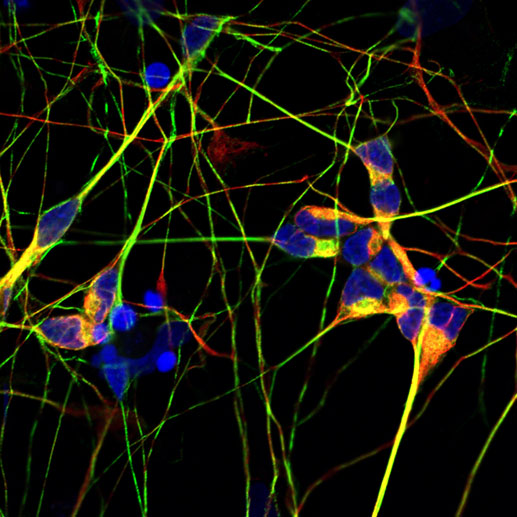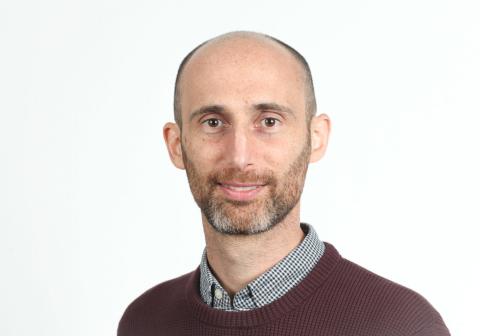Biography
As part of his undergraduate studies Prof Adrian Isaacs spent one year working at the Mayo Clinic with John Hardy and Mike Hutton, where he was part of the team that discovered that mutations in MAPT gene cause frontotemporal dementia (FTD). Following completion of a PhD at Oxford University and post-doctoral studies at Harvard Medical School, Prof Isaacs established his own group at UCL. As part of this UK DRI research programme, Adrian is investigating the molecular and cellular mechanisms that lead to FTD and amyotrophic lateral sclerosis.
Isaacs Lab
Explore the work of the Isaacs Lab, deciphering the fundamental molecular causes of frontotemporal dementia and ALS

